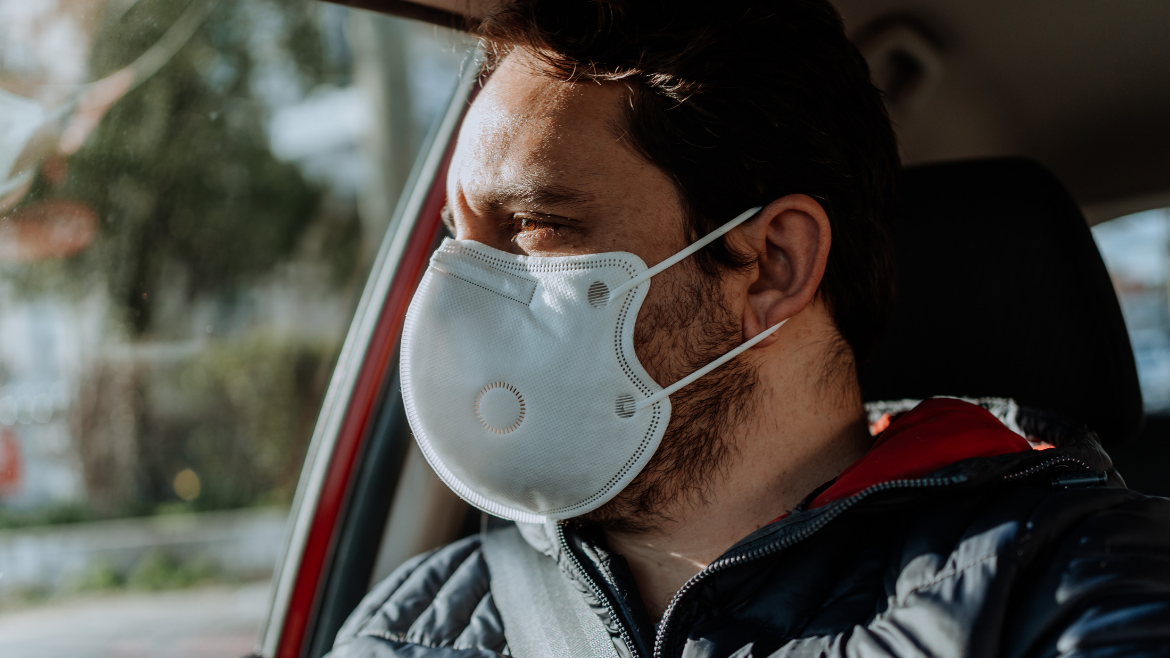BY STEVE PENELLA
In October 2020, my husband and I tested positive for COVID-19. As someone who has dealt with anxiety and depression, I was very concerned that this illness would trigger another episode even though I have been successfully managing my mental health without a reoccurrence for more than five years.
It started with waking up and not feeling quite right. The thermometer read that I had a fever and then the body aches started. My husband, who had been out running errands, returned also saying he did not feel well. A COVID test returned a “detected” result for the both of us. It all happened so quickly, feeling sick, surmising it might be COVID, scheduling the test, getting the test and then getting the COVID-positive lab result back.
Looking back, we were very fortunate. We were sick for nearly two weeks with unpleasant flu symptoms, but nothing that landed us in the hospital or worse. Being in the midst of it, on the other hand, made me very anxious.
We first touched base with our doctor and there was not a lot he could say. He told us to treat the symptoms, take fever reducers, get lots of rest, and drink lots of liquids. We were also told that days five through seven could be critical, meaning that’s typically when more serious symptoms could start to appear. That definitely fed my naturally worrisome mind. Shortly after getting that information from the doctor, my husband and I received calls pertaining to contact tracing, asking us all kinds of questions about where we had been and who we had seen prior to coming down with symptoms and testing positive.
From the start of showing symptoms and throughout the two weeks of having them, looping thoughts gnawed at me: Is the virus going to turn suddenly and become more serious? Will I have trouble breathing? Will I end up in the hospital? Will I be put on a respirator? Will I die? What about my husband, who had triple by-pass surgery two years prior? Will he be more susceptible?
Will we both get more serious symptoms? Will our lives be suddenly seriously impacted by all of this? What if we passed it to someone else and they became seriously ill? Would we be able to live with ourselves knowing that?
We have good friends and family, so there were a lot of calls coming our way, flowers sent to us, and food brought over by neighbors. Co-workers would send me texts offering to pick up groceries for us. The CEO of my company texted me twice, saying they were all thinking of us and saying that if there was anything he could do, we shouldn’t hesitate to ask. These are all very sweet things, and we appreciated them so much.
But when you live with anxiety even wonderful support from family and friends can have a dark side. I started focusing on why there might be such overwhelming concern. My internal story was that you don’t typically get this type of attention when you’re out with a flu for a week. The reason people are behaving this way is because this is a potentially dangerous and fatal virus. They are really concerned, and I should be too!
Although my husband and I had similar symptoms, I slept a lot where he had trouble sleeping. Because he could not sleep well, he would often lie on the couch, watching TV and doze off now and then. Every morning I would come down the stairs and wonder if I would find him having difficulty with his breathing, or worse.
My strategy for dealing with the anxiety throughout being sick was to be proactive and do what I could to feel better about the situation. We monitored our temperatures and suppressed our fevers. We let everyone we had contact with know and they were tested.
After several weeks, our main symptoms were gone, but the anxiety did not abate. Luckily, I was able to tap my cognitive behavioral therapy skills, which are my go-to when feeling anxious. That helped a lot, although relief from my anxiety wasn’t instantaneous. Several months passed before I felt I was in the clear emotionally.
Another strategy for managing anxiety was to just stop and recognize how difficult this situation was in the midst of it. Having COVID was both physically and mentally draining. Acknowledging this and forgiving myself for not handling everything perfectly helped me find my way out of being imprisoned by the anxiety I felt in its aftermath.
Steve Penella is a 35 year veteran in the high tech industry and for the past 8 years has worked in health information technology in Software Quality Assurance. He has lived experience with depression and anxiety and has been a NAMI “In Our Own Voice” presenter for the past 2 years. He is also a member of The Stability Network and is passionate about anything surrounding mental health awareness, education, advocacy and de-stigmatization.

